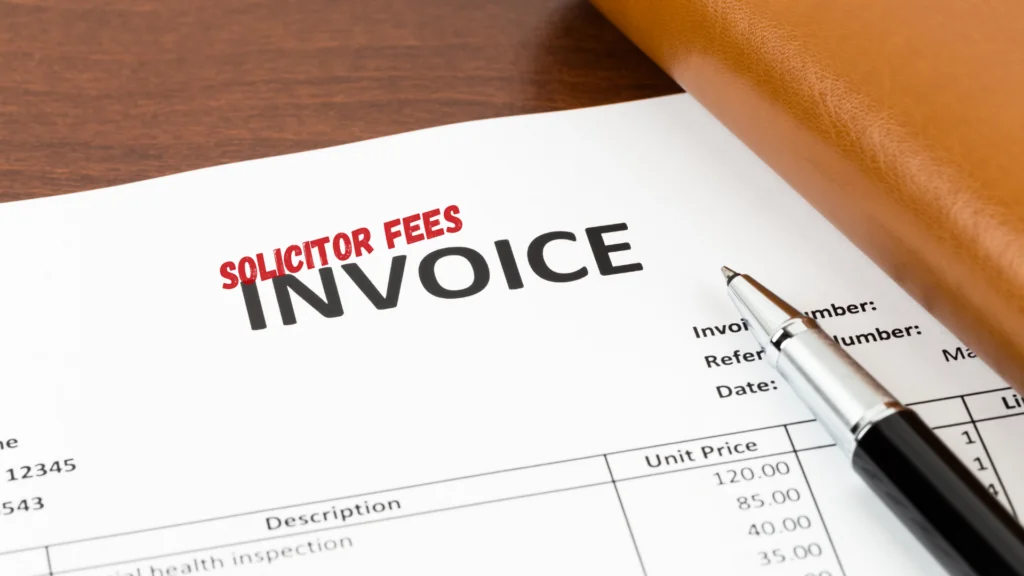- Is it Possible to Get a Mortgage on an Unencumbered Property?
- What Does ‘Unencumbered’ Mean in Mortgage Terms?
- Who Can Get an Unencumbered Mortgage?
- Do I Get a New Mortgage or Remortgage?
- Should You Remortgage Your Fully-Owned House?
- Can I Remortgage a Property in Poor Condition?
- Unencumbered Remortgage for Investments
- Remortgaging on Residential Properties
- Can I Get an Unencumbered Mortgage with Poor Credit?
- Can I Remortgage an Inherited Home?
- The Bottom Line
Unencumbered Mortgage: How To Remortgage a Fully Owned Home?

Owning a property without any debts hanging over it – sounds liberating, doesn’t it?
And with that freedom, you might be thinking about the different ways to make the most of your fully paid property.
Maybe it’s time to fix up the house or invest in a new opportunity?
In this article, we’ll break down the step-by-step process of remortgaging a property that’s already paid off, a concept known as an unencumbered mortgage.
We’ll help you understand what it means to have an unencumbered property and how you can use it as a tool to achieve your financial goals.
Whether you’re considering using the funds for home improvements, merging other debts, or jumping into a promising investment, it’s important to know all the details before making a decision.
Is it Possible to Get a Mortgage on an Unencumbered Property?
Yes, it’s possible to secure a mortgage on a fully owned or unencumbered property in the UK.
In fact, being the full owner of your home could make you an attractive candidate for a mortgage.
This is because you have the opportunity to unlock the value built up in your home by taking out a loan against it.
But, keep in mind that lenders will still assess your financial standing to ensure that you can comfortably make the mortgage repayments.
Going for a smaller mortgage is a strategy that could benefit you, as it often means lower mortgage rates.
Moreover, it lets you maintain a huge portion of your home’s equity.
On the other hand, opting for a larger mortgage might bring higher rates and lessen the equity you hold in your property.
What Does ‘Unencumbered’ Mean in Mortgage Terms?
An unencumbered property is a home that is not mortgaged, charged, or legally restricted. This means that it does not have any outstanding loans or liens against it.
If you have paid off your mortgage in full or bought a house with cash, your property is considered unencumbered.
An unencumbered remortgage is when you take out a new mortgage on a property that is already mortgage-free. Homeowners may choose to do this for a variety of reasons, such as:
- To release equity from their property to fund home improvements or other expenses.
- To consolidate debt.
- To take advantage of a lower interest rate.
Who Can Get an Unencumbered Mortgage?
The eligibility requirements for an unencumbered mortgage are similar to those for any other type of mortgage.
Lenders will assess your income, loan-to-value (LTV) ratio, ability to repay the mortgage, and any existing debts.
The purpose of your remortgage, whether for residential or buy-to-let investment, will also be a factor.
Your employment status is another important factor that can affect your eligibility.
Many factors can affect eligibility, so it’s not possible to cover them all here.
But, our expert advisors can help you understand the eligibility requirements and find the best mortgage deal for you.
If you meet the eligibility criteria, you can apply for an unencumbered mortgage through a bank, building society, or a mortgage broker.

Do I Get a New Mortgage or Remortgage?
Owning a home outright often gives you access to a range of good deals. But, many lenders might see this as a new purchase instead of a remortgage.
No worries though – the basic rules for this process are still the same.
Before you apply, it’s a good idea to understand how unencumbered remortgages work.
Basically, a remortgage is when you replace an old mortgage with a new one.
But, since your home doesn’t have a mortgage at the moment, lenders might not offer a typical “remortgage”.
The good news is, whether they call it a remortgage or a new purchase, the process remains the same. You’ll find many options to choose from, both in terms of lenders and the fees involved.
If you’ve bought a home with cash or have already paid off a mortgage, lenders will see you as financially stable.
This usually means getting a new mortgage should be easy. If you need advice that suits your situation, feel free to reach out to us to get started.
Should You Remortgage Your Fully-Owned House?
Owning your home outright puts you in a favourable financial position. You might find taking out a mortgage beneficial, depending on your circumstances and aims.
But, stepping into a mortgage on a property you fully own involves certain risks. Therefore, considering an unencumbered mortgage requires thoughtful analysis, just like any other mortgage decision.
Here are some vital points to actively ponder:
Reason for the Mortgage
The first thing to think about is why you want to remortgage. Are you looking to buy another property? Do you need to finance home renovations? Or are you simply looking to get a better interest rate?
It’s important to make sure that the reason for your remortgage is sound financially. A good mortgage advisor can help you with this.
New Financial Obligation
Remortgaging means taking on a new financial obligation. You’ll need to make monthly mortgage payments, which will add to your existing expenses.
It’s important to make sure that you can afford these new payments comfortably. You should also factor in any other costs associated with remortgaging, such as arrangement fees and valuation fees.
Assess the Risk
Taking out a mortgage always involves some risks. Since you have already cleared your home’s mortgage, consider whether you need to shoulder additional risks.
Remember, not maintaining repayments can lead to the repossession of your home. Even if you are financially stable now, you must remain conscious of the potential risks.
Deal with Existing Debts
If you are already juggling substantial debts, an unencumbered mortgage might not be the smartest move. However, your circumstances might dictate otherwise.
You can always seek expert advice to get a clearer perspective on your situation. If consolidating debts is your goal, there are specific remortgages designed to facilitate this.

Can I Remortgage a Property in Poor Condition?
Yes, you can. Buying a property that’s seen better days can be a great opportunity, either as a smart investment or a home that’s ready for a makeover.
Many people are drawn to these kinds of properties because they are usually cheaper at first. They see a chance to increase the property’s value greatly with some well-planned improvements.
You might buy the property with cash at first, then quickly start on major renovations. The goal is to either sell it later for a good profit or to rent it out for a steady income.
If you are living in a home that needs some upgrades, this route can provide you with a nicer place to live and increase the home’s worth for when you decide to sell.
Unencumbered Remortgage for Investments
Investors prefer buying properties with cash instead of taking out mortgages, and they do this for a few simple reasons:
- The deal needs to be wrapped up quickly, like when buying at auctions.
- The property is a bit run-down, making it unsuitable for a mortgage at the moment.
- They plan to sell the property quickly and don’t want the usual six-month mortgage rule to slow them down.
Once you buy a property with cash, you’ve got what we call an ‘unencumbered’ property – no debts hanging over it.
This means you have the freedom to think about remortgaging if you want to rent the place out or live in it yourself.
Doing this could give you some extra cash to use on your next project. But remember, usually, you’ll need to wait about six months to be eligible for a mortgage.
If you’re in a hurry, it’s a good idea to chat with us and we’ll connect you with a specialist mortgage broker who can present you with apt solutions.
Remortgaging on Residential Properties
If time has taken its toll on your property, don’t worry – it doesn’t automatically rule out a remortgage.
If your home is still safe to live in, getting a mortgage can be a relatively straightforward process.
But, if parts of your home, such as the kitchen or bathroom, are in a really poor state, some lenders may see your property as uninhabitable and be less likely to approve a mortgage.
It’s important to check the condition of these rooms before applying.
If your property is not up to scratch, other financial options may be more suitable. Refurbishment loans or bridging finance could be worth considering.
And if you are unsure how to proceed, you can always seek advice from a mortgage broker to guide you through your unencumbered remortgage journey.

Can I Get an Unencumbered Mortgage with Poor Credit?
Yes, it is possible, but it’s no secret that having a bumpy credit history can make the road to securing an unencumbered mortgage a bit more challenging.
Your choices might be limited, but it’s not a dead-end. There are lenders out there who focus on helping individuals with credit hiccups.
Remember, the timing of your credit issues matters. If you faced financial difficulties over six years ago, you can still find some competitive mortgage deals. It won’t be a total roadblock.
Moreover, the nature of your credit issues does count.
Generally, lenders view defaults and late payments as less serious compared to repossession or bankruptcy.
So, even if you’ve faced significant credit problems, don’t lose hope; securing a mortgage is still within reach.
Can I Remortgage an Inherited Home?
Inheriting a property often comes with a mixed bag of emotions and responsibilities, particularly during a challenging time.
Despite the swirling emotions, it’s necessary to tackle the administrative task of transferring the property ownership promptly.
Inheriting a property sometimes brings complex issues to the fore, including potential disputes among family members and unexpected charges or restrictions tied to the estate.
But, your solicitor stands by your side during this process, diligently protecting your rights and best interests.
If you’ve recently inherited a mortgage-free property, you might consider remortgaging it to free up some capital without having to sell.
This approach, widely known in the sector as “let-to-buy“, enables you to use the released funds to perhaps acquire a new home while setting the inherited property up for rent.
But, be aware, this pathway isn’t always straightforward.
Most lenders prefer you to have owned the property for a minimum of 6 months before you can apply for a remortgage.
The Bottom Line
Remortgaging an unencumbered property is entirely possible, but it can come with its set of challenges.
Whether it’s dealing with the intricacies of paperwork, understanding the finer details of mortgage terms, or pinpointing the most advantageous deals, the process can be time-consuming and often confusing.
This is where a remortgage broker becomes invaluable. They streamline the process by:
- Managing all the paperwork, ensuring nothing’s missed.
- Offering expertise on the current mortgage landscape to identify the best options available.
- Potentially saving you both time and money by using their industry connections and knowledge.
If you’re considering a remortgage, don’t go at it alone. Fill out this quick form, and we’ll connect you with a top-notch remortgage broker equipped to simplify the process and find you the best deal.
Get Matched With Your Dream Mortgage Advisor...

Frequently asked questions
Can I remortgage with no mortgage?
Yes, you can. This is called an unencumbered mortgage. You’re basically taking a new loan on a property you already own, freeing up cash for other uses. Because there’s no existing mortgage, lenders often give you better terms.
What are the benefits of an unencumbered mortgage?
An unencumbered mortgage offers lower interest rates, quicker approvals, and more financial freedom. Since you fully own the property, lenders see less risk, giving you better loan terms and a smoother process.
What are the current interest rates for unencumbered mortgages?
As of writing, unencumbered mortgage rates typically range from 5.75% to 6.25%. The lowest rates often apply to loan-to-value ratios (LTVs) up to 60%.
It’s important to note that your specific rate may vary based on other factors, such as your financial stability and credit history. Be sure to thoroughly compare options and be prepared for a detailed financial review. Keep in mind that rates in the UK’s mortgage market are subject to fluctuation.
This article has been fact checked
This article was created, checked, and verified by the expert team at Money Saving Guru. Trust us, you’re in good hands.




